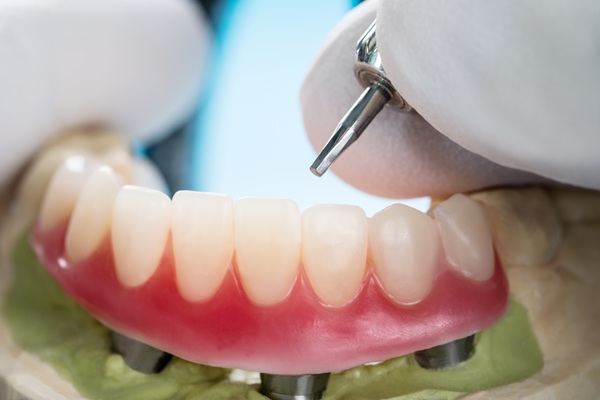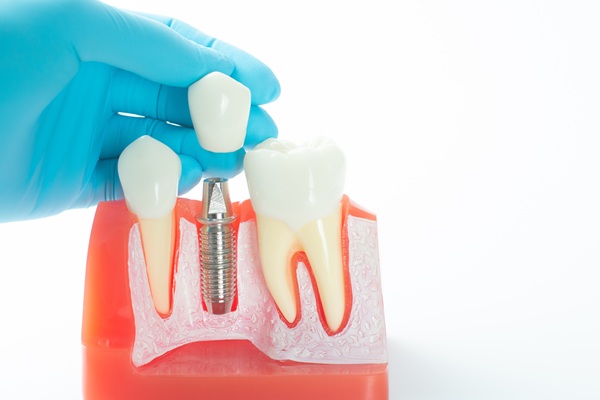Oral Surgery Procedures [FAQs]

Looking for more information on oral surgery procedures? According to the Centers for Disease Control and Prevention, oral surgical procedures involve the incision, excision or reflection of tissue that exposes the normally sterile areas of the oral cavity. A few examples of oral surgery procedures include implant surgery, tooth extractions and performing any necessary root canals.
Reasons for oral surgery
Wondering why oral surgery is necessary? There are many different reasons why a dental patient would be in need of this type of dental procedure, all of which are necessary in order to improve their overall good dental health. Some of the more common reasons why a patient would need to undergo a surgical process are because they want to get dental implants, because they have been diagnosed with TMD and because they have one or more impacted wisdom teeth.
FAQs about oral surgery procedures
The list below includes some of the more frequently asked questions people have about dental procedures that require oral surgery.
How painful are oral surgical procedures?
Some oral surgical procedures will cause more pain than others, making it necessary for patients to understand what kind of discomfort and/or pain they can expect after undergoing their type of oral surgery. For the most part, patients will need to rest for a few days after undergoing an oral surgical process and will be given any necessary pain medications to help them deal with their various levels of pain.
How long does it take to place dental implants?
It takes a dentist about one hour to place a dental implant in a patient's mouth. While the initial placement does not take very long to perform, getting implants is a many months-long process. It takes time for the implant to fully heal, which means the patient will need to make multiple appointments when they choose implants as their tooth replacement option.
Is oral surgery necessary to extract impacted wisdom teeth?
Yes. When a dental patient's wisdom teeth are impacted, it is necessary for them to undergo a surgical process in order to extract the wisdom teeth from the mouth. General dentists often perform surgery on patients who have one or more impacted wisdom teeth if the surgical process is considered to be a simple wisdom tooth extraction.
How long does it take to recover from a root canal?
Once a patient undergoes the surgical process of having a root canal performed, they can expect it to take them anywhere between three and five days to recover from the surgery. It is essential for all patients to carefully follow their aftercare instructions, which are given to them by their dentist. Examples of instructions include only eating soft foods, relaxing and being careful when brushing and flossing.
Are you in need of oral surgery?
Now that you understand more about oral surgery procedures, are you in need of an appointment? The only way you can know for sure whether or not oral surgery is in your near future is to make an appointment with a dentist for a full mouth evaluation. Once you undergo this evaluation, a dental treatment plan will be made for you, which tells you the exact steps you need to take in order for you to have a completely healthy mouth.
Request an appointment here: https://corderoperiodontics.com or call Rafael E. Cordero, DDS PA at (561) 763-9221 for an appointment in our Palm Beach Gardens office.
Check out what others are saying about our services on Yelp: Read our Yelp reviews.
Recent Posts
Implant-supported dentures often appeal to patients who feel frustrated by loose or uncomfortable traditional dentures. This treatment uses dental implants to securely anchor a custom denture for a solution that looks natural and feels more stable in everyday life. Careful planning from a periodontist or prosthodontist can help determine whether implant-supported dentures or traditional dentures…
Appearance may be one of the first things people think about when it comes to tooth replacement. However, improved appearance is just one of the many benefits of replacing missing teeth. Tooth replacement can be key to improving not only how you feel about your smile but also boosting your oral health.Whether one chooses dentures,…
The jawbone is the part of the face that holds many essential elements together, such as the teeth, ligaments, and muscles; however, bone grafting may sometimes be necessary if the jawbone is too weak to perform these tasks. A person’s jawbone can deteriorate over time, whether due to age, genetics, poor oral health, cancer, or…
A periodontist can help improve gum recession. This is one of the first signs of gum disease. Seeing this dental care provider early can help you target the problem with the necessary treatment. Here are the details on how a periodontist can help fix receding gums.Getting a regular professional dental cleaning can remove the plaque…


